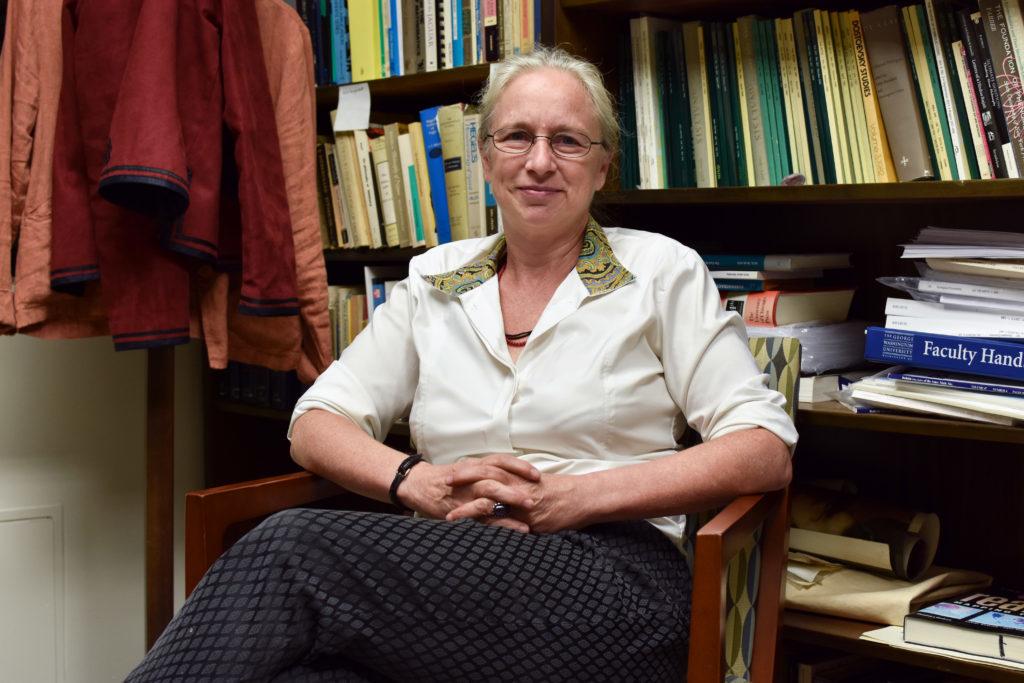A new course available to students during winter break will allow participants to travel to and study in Mexico to learn about human consequences of pollution.
The course, titled Philosophy of the Environment Laboratory, will run for about 10 days from Dec. 31 to Jan. 10 and fulfill a requirement for several majors and minors, like philosophy, sustainability and geography. Faculty said the course will bring together students and faculty from GW and the University of Guadalajara to explore dimensions of the social, political, economic and environmental issues in the region.
Michele Friend, an associate professor of philosophy teaching the course, said students on the trip will listen to academics – biologists, ecologists, economists and sociologists – discuss different types of pollution in the region. She said students will get a behind-the-scenes look at how pollution affects everyday activities and items like food.
“All of the food being grown in Mexico is then exported to the United States, and that gives you the privilege of having fruit,” she said. “So they’re going to see really where that comes from to make students more aware of what is going on with globalization.”
Participants will engage in “philosophical” discussions on the data they analyze, according to the course’s itinerary.
Friend said students will hear from lecturers about what they think of local ecological problems and about what afflictions locals suffer from as a result of the problems. She said students might find some of the discussions “shocking” because the pollution situation is “very grave.”
She added that students will have “encounters” with professionals, local non-governmental organization representatives, government officials, indigenous people, farmers and “other people on the ground” who deal with environmental issues on a regular basis to gain first-hand knowledge of the issues facing the area.
Students will also gather data on topics related to the environment, like the flow of nutrients in the soil, in addition to sociology, politics and economics, she said. They will then use a form of analysis called “institutional compass” to review the data in terms of its qualities like the remaining amounts of natural resources.
“The point is that things like ecological disasters are going to increase, and they’re going to be on your doorstep sooner rather than later,” Friend said.
She said the course will ultimately change the way these students see the world by making them rethink facts they already know about the environment.
Half of the students on the trip will be from GW and the other half will be from the University of Guadalajara, Friend said. She said the ratio will allow students opportunities to form friendships and make ties with people in the country.
Friend said she came up with the idea for the class a few years ago when she met someone from the University of Guadalajara who wanted to bring foreigners to the region to get a better understanding of the area’s ecological and economic problems. As a result, students will not only visit sites and learn history but also discover sources of the problems, she said.
“We eventually worked out a way of doing this, and I’m very excited to be able to do it,” Friend said.
Max Gelber, the program manager of academics and research for Sustainable GW, said five students have currently filled out applications for the trip on GW Passport, a program that allows students to study in countries abroad. He said the program needs 10 students to pay a $1,000 deposit by Friday in order for the trip to take place.
Gelber said the students, faculty and staff should “keep an eye” on the program and see where it goes because the class is a “unique” opportunity for those participating.
“I think it’s one of those ‘#OnlyatGW’ and ‘#RaiseHigh’ moments,” he said. “Courses like these really give meaning to the hashtags.”
Francesca Edralin, a sophomore majoring in international affairs with a concentration in environmental studies, said she had signed up for the course but decided not to take it because she has already participated in different study abroad opportunities pertaining to the environment and sustainability.
Edralin said she would have hoped to gain an interactive understanding of how developing regions struggle with resource management and the environment’s intersection with ethics.
“With subjects like environmental protection, I think it’s one of those subjects where your education is a lot more enhanced when you see the issues and the problems in real life,” Edralin said.








